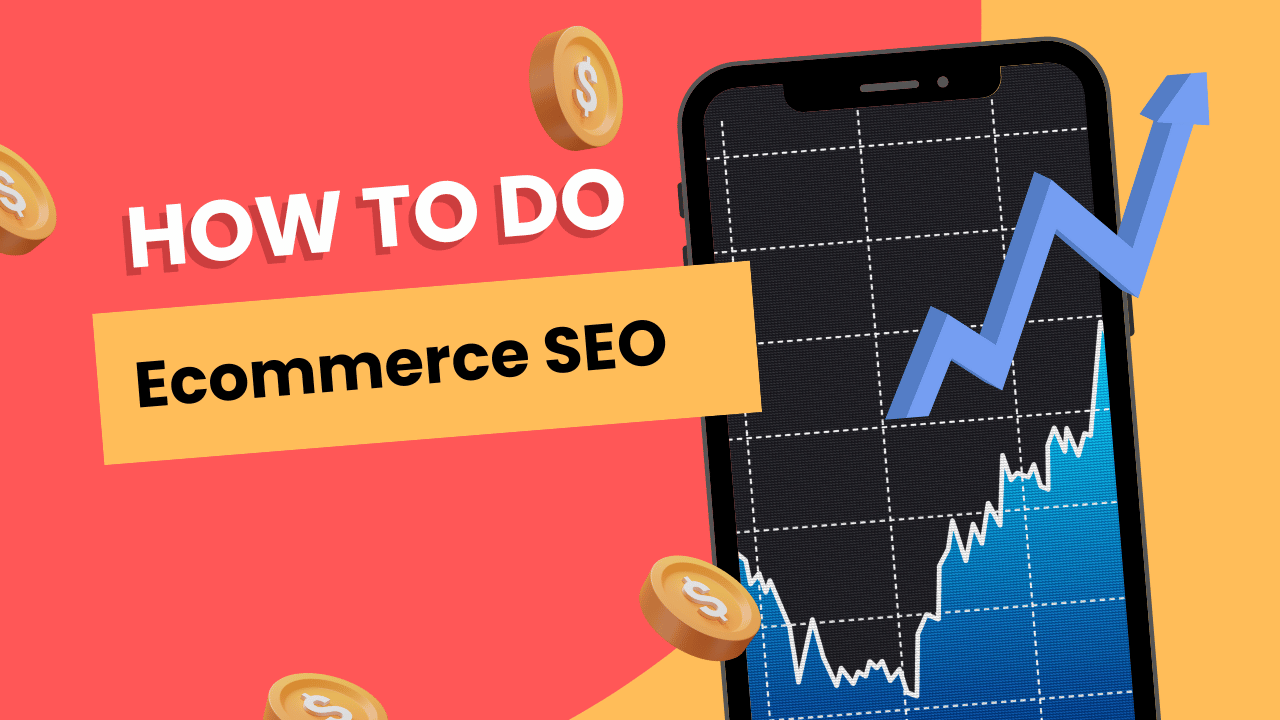SEO
Ecommerce SEO: Boosting Your Online Store’s Visibility and Sales
Introduction
In the ever-expanding world of e-commerce, having a well-optimized website is crucial to stand out from the competition and attract potential customers. Search Engine Optimization (SEO) plays a vital role in improving the visibility of your online store and driving organic traffic. This article will guide you through the essential strategies and techniques to enhance your e-commerce website’s SEO performance, ultimately leading to increased sales and success in the digital marketplace.
Table of Contents
- Understanding the Importance of Ecommerce SEO
- Keyword Research for Ecommerce Websites
- On-Page Optimization for Ecommerce
- Title Tags and Meta Descriptions
- URL Structure and Formatting
- Product Descriptions and Unique Content
- Image Optimization
- Technical SEO for Ecommerce
- Site Speed and Mobile Responsiveness
- XML Sitemaps and Robots.txt
- Structured Data Markup
- Building a Strong Backlink Profile
- Guest Blogging and Influencer Outreach
- Social Media Engagement and Sharing
- Ecommerce Directories and Review Websites
- User Experience and Conversion Rate Optimization (CRO)
- Mobile-Friendly Design
- Clear Navigation and Site Structure
- Streamlined Checkout Process
- Customer Reviews and Testimonials
- Content Marketing for Ecommerce SEO
- Blogging and Resourceful Articles
- Video Marketing and Product Demonstrations
- Infographics and Visual Content
- Local SEO for Ecommerce Businesses
- Google My Business Listing
- Local Keywords and Citations
- Online Reviews and Ratings
- Monitoring and Analytics
- Tracking Keyword Rankings
- Google Analytics and Webmaster Tools
- Conversion Tracking and Goal Setting
- Continuous Optimization and Adaptation
Understanding the Importance of Ecommerce SEO
In a competitive online marketplace, it’s crucial to optimize your e-commerce website to appear prominently in search engine results. By implementing effective SEO strategies, you can enhance your website’s visibility, increase organic traffic, and ultimately drive more sales. With millions of potential customers actively searching for products and services online, ignoring SEO means missing out on valuable opportunities to grow your business.
Keyword Research for Ecommerce Websites
One of the foundational elements of successful e-commerce SEO is thorough keyword research. By identifying the right keywords and phrases that your target audience is using to search for products, you can optimize your website’s content accordingly. Use keyword research tools to discover high-volume and relevant keywords, and integrate them strategically into your product descriptions, titles, meta tags, and other on-page elements.
On-Page Optimization for Ecommerce
On-page optimization involves optimizing various elements of your website to improve its search engine visibility and user experience. Some essential on-page optimization techniques for e-commerce websites include:
Title Tags and Meta Descriptions
Craft unique and compelling title tags and meta descriptions for each page, including your product pages. These elements appear in search engine results and can significantly impact click-through rates.
URL Structure and Formatting
Create clean and descriptive URLs that contain relevant keywords. Avoid lengthy and confusing URLs, as they can negatively affect user experience and search engine rankings.
Product Descriptions and Unique Content
Write engaging and informative product descriptions that highlight the features, benefits, and unique selling points of your products. Ensure your content is original, as duplicating content from other sources can harm your website’s SEO performance.
Image Optimization
Optimize your product images by using descriptive file names and alt tags. Compress the images without compromising quality to improve page load speed, which is essential for both user experience and search engine rankings.
Technical SEO for Ecommerce
In addition to on-page optimization, technical SEO plays a crucial role in improving your e-commerce website’s performance. Some key aspects to focus on include:
Site Speed and Mobile Responsiveness
Ensure that your website loads quickly and is optimized for mobile devices. Slow-loading websites can lead to higher bounce rates and lower search engine rankings.
XML Sitemaps and Robots.txt
Create and submit XML sitemaps to search engines to ensure efficient crawling and indexing of your website. Utilize robots.txt to control search engine bots’ access to specific pages or directories.
Structured Data Markup
Implement structured data markup, such as Schema.org, to provide search engines with additional information about your products, prices, availability, and customer reviews. This can enhance your search engine listings and attract more qualified traffic.
Building a Strong Backlink Profile
Earning high-quality backlinks is an essential aspect of off-page SEO for e-commerce websites. Here are a few strategies to consider:
Guest Blogging and Influencer Outreach
Collaborate with industry influencers and authoritative websites in your niche to contribute guest posts and earn backlinks. This can expand your reach, drive referral traffic, and boost your website’s credibility.
Social Media Engagement and Sharing
Leverage social media platforms to engage with your audience, share valuable content, and encourage social sharing. This can increase brand visibility and attract potential customers to your e-commerce store.
Ecommerce Directories and Review Websites
Submit your website to reputable e-commerce directories and review websites. These platforms can provide valuable backlinks, increase your brand’s online presence, and generate user reviews, which can boost your website’s credibility.
User Experience and Conversion Rate Optimization (CRO)
Creating an exceptional user experience on your e-commerce website is crucial for maximizing conversions. Consider the following factors:
Mobile-Friendly Design
Optimize your website’s design and layout for mobile devices, as an increasing number of users browse and shop on their smartphones and tablets.
Clear Navigation and Site Structure
Ensure that your website has intuitive navigation, allowing users to find products easily and navigate through different categories. A clear site structure helps search engines crawl and understand your website better.
Streamlined Checkout Process
Simplify your checkout process to minimize cart abandonment rates. Offer guest checkout options, provide secure payment gateways, and optimize the entire purchase journey.
Customer Reviews and Testimonials
Display customer reviews and testimonials prominently on your product pages to build trust and credibility. Positive reviews can influence purchasing decisions and encourage potential customers to choose your store over competitors.
Content Marketing for Ecommerce SEO
Content marketing can significantly contribute to your e-commerce SEO efforts. Consider the following content types:
Blogging and Resourceful Articles
Maintain a blog and regularly publish informative articles related to your products, industry trends, and customer pain points. This helps establish your expertise, attracts organic traffic, and encourages social sharing.
Video Marketing and Product Demonstrations
Create engaging product videos and demonstrations to showcase your products’ features and benefits. Video content has a higher chance of going viral and can drive traffic and conversions.
Infographics and Visual Content
Design visually appealing infographics and other visual content to simplify complex information, educate your audience, and encourage social sharing. Visual content can also attract backlinks from other websites.
Local SEO for Ecommerce Businesses
If you have a physical store or serve specific geographical areas, implementing local SEO strategies can be highly beneficial. Consider the following:
Google My Business Listing
Create and optimize your Google My Business profile, providing accurate and up-to-date information about your business. This helps your store appear in local search results and on Google Maps.
Local Keywords and Citations
Incorporate local keywords into your content, meta tags, and product descriptions to target customers in specific locations. Ensure consistency in your NAP (Name, Address, Phone) information across online directories and citations.
Online Reviews and Ratings
Encourage customers to leave reviews and ratings on platforms like Google, Yelp, and other relevant review websites. Positive reviews and high ratings enhance your online reputation and attract local customers.
Monitoring and Analytics
Regularly monitor and analyze your e-commerce website’s performance using various tools and analytics platforms. Key areas to focus on include:
Tracking Keyword Rankings
Keep track of your website’s rankings for target keywords and identify areas for improvement. Monitor keyword fluctuations and adjust your SEO strategies accordingly.
Google Analytics and Webmaster Tools
Utilize Google Analytics to gain valuable insights into your website’s traffic, user behavior, and conversion rates. Google Webmaster Tools can help identify technical issues and ensure proper indexing of your site.
Conversion Tracking and Goal Setting
Set up conversion tracking to measure the effectiveness of your marketing campaigns and optimize your website’s conversion rate. Establish specific goals and track the performance of different user actions.
Continuous Optimization and Adaptation
Ecommerce SEO is an ongoing process that requires continuous optimization and adaptation. Stay updated with the latest SEO trends, algorithms, and industry best practices. Regularly audit your website, analyze data, and make necessary adjustments to maintain and improve your search engine visibility and sales.
Conclusion
Implementing effective SEO strategies is essential for the success of your e-commerce store. By optimizing your website’s content, structure, and user experience, you can attract more organic traffic, improve search engine rankings, and ultimately boost your sales. Stay proactive, continuously refine your SEO approach, and monitor the results to ensure long-term growth and success in the competitive e-commerce landscape.
FAQs
1. How long does it take to see the results of e-commerce SEO?
The timeline for seeing results from e-commerce SEO can vary based on several factors, including the competitiveness of your industry, the quality of your SEO implementation, and the size of your website. Generally, it can take several months to start seeing significant improvements in search engine rankings and organic traffic.
2. Is it necessary to hire an SEO agency for e-commerce SEO?
While hiring an SEO agency can be beneficial, it’s not always necessary. With the right knowledge and resources, you can implement effective SEO strategies on your own. However, if you lack the expertise or time to handle SEO tasks, working with an experienced agency can help you achieve better results.
3. How often should I update my e-commerce website’s content?
Regularly updating your e-commerce website’s content is essential for both SEO and user experience. Aim to add fresh content, such as new product descriptions, blog posts, or customer testimonials, on a consistent basis. This shows search engines that your website is active and provides valuable information to visitors.
4. Can social media impact e-commerce SEO?
While social media signals don’t directly influence search engine rankings, a strong social media presence can indirectly benefit your e-commerce SEO efforts. Social media platforms provide opportunities for engagement, brand exposure, and sharing of your content, which can lead to increased visibility, traffic, and potential backlinks.
5. How can I track the effectiveness of my e-commerce SEO efforts?
Utilize tools like Google Analytics and Google Search Console to track the performance of your e-commerce SEO. Monitor key metrics such as organic traffic, keyword rankings, conversion rates, and engagement. Regularly analyze the data and make data-driven adjustments to optimize your SEO strategy.

